#EVs
U.S. EPA Readies Strictest Vehicle Emission Requirements Ever
We’ve got good news for people who want fewer choices in the type of cars they’ll be able to purchase in the future.
The U.S. Environmental Protection Agency (EPA) has finalized strict new vehicle emissions requirements through 2026 that would reverse the current standards set by the agency under former President Donald Trump. The Trump administration rolled back some of the long-term environmental policies implemented under the Obama administration. However, the Biden administration has said its biggest focus will be on addressing climate issues by dissolving those policies restoring the targets established when Barack Obama was still in the White House. The agency released some proposals in August outlining the general path it would be taking. But the details dropped by EPA Administrator Michael Regan on Monday vastly exceed those Obama metrics serving as a benchmark.
Analysis: What's the Opposite of Reducing Your Carbon Footprint?
Why are we switching to electric cars? I mean, I’m not talking about the need to “do better” when it comes to Mother Earth and the baby kangaroos — even Randy Newman wouldn’t bomb the baby kangaroos — but are EVs and billions spent to lower prices and build chargers for the things really going to make the world better if people just look at them as a way to have their cakes and eat them, too? To put it another way, are you really reducing your carbon footprint behind the wheel of a 9,046 lb. GMC Hummer pickup?
That’s right, kids. The upcoming all-electric Hummer will tip the scales at more than 4.5 tons — and that’s “just” the pickup. The SUV will probably weigh more since it’ll be hauling around more glass, seats, and carpets than the pickup. Despite having enough mass to generate its own gravity, the GMC-badged truck can rocket to 60 mph in under 4 seconds, and effectively crush its way through untouched, virgin wilderness in a manner worthy of its heritage as an Army man cosplay favorite (Punisher window sticker not included).
It’s almost enough to make me throw my hands up and say, “Why bother!?” And that, dear B&B, led me to ask myself the question: What would I drive if I just didn’t give a f***?
Toyota Announces EV Strategy, Readies $70 Billion for the Cause
On Tuesday, Toyota Motor Corp. announced a commitment of 8 trillion yen ($70 billion USD) toward the goal of achieving carbon neutrality someday. Though the concept of any multinational manufacturing entity totally nullifying their carbon footprint seems kind of laughable, so we’ll be referencing this as another electrification strategy — which is still a big deal considering how EV averse Toyota has been thus far.
Despite being an environmental trendsetter with the Prius Hybrid, Toyota has been hesitant to formally commit itself to transition its lineup toward being reliant on battery power. However, President Akio Toyoda has just proudly confirmed that the Japanese automaker would be earmarking the funds for exactly that purpose, noting that the brand (along with Lexus) would be spending the money through 2030 to make sure its global sales of battery electric vehicles (BEVs) reach 3.5 million vehicles annually. Though the most enjoyable aspect of the release was the direct manner it was presented, with Toyoda-san being impressively honest about modern automotive trends.
GM CEO Says Incentives May Help America Transition to EVs
General Motors CEO Mary Barra has chimed in on the weeklong open discussion about whether or not it’s a good idea for America to embrace the Biden administration’s EV tax credit plan, which just so happens to be deeply intertwined with the Build Back Better Act’s cavalcade of federal initiatives.
As we’ve already covered the topic more than once, we’ll avoid the recap and simply post the relevant links where Tesla CEO Elon Musk recommended pitching the entire bill into the trash and Transportation Secretary Pete Buttigieg went to bat for the White House by suggesting the updated tax scheme was a necessity for electrification to thrive. Barra opted to go with the latter take, stating that it could help accelerate EV adoption.
Biden Executive Order to End Gasoline Powered Vehicle Purchases
On Wednesday, President Joe Biden signed an executive order committing the United States to the acquisition of only zero-emission vehicles by 2035 for the federal vehicle fleet.
This is totally in line with the administration’s stated desire to focus on transitioning the nation toward renewable energy sources while advancing electric vehicle adoption rates. But the event was curiously not celebrated with the applicable fanfare. Biden signed the document without media there to capture the moment and reporters failed to ask about it during a press event on the White House lawn later in the day. Were it not for an official fact sheet issued by the administration later in the day, we may never have known there even was a signing.
Buttigieg Issues Rebuttal to Elon Musk Regarding EV Subsidies
U.S. Transportation Secretary Pete Buttigieg has responded to criticisms Elon Musk has made about the Biden administration’s plan for electric vehicle subsidies.
The Tesla CEO believes the Obama-era EV tax credits were more than sufficient, with his own company serving as physical proof, and suggested the entire Build Back Better Act be tossed into the toilet. But Secretary Buttigieg said it was a necessary item if the United States hoped to advance electrification, swiftly transition away from combustion vehicles, and escape the perils of climate change (formerly known as global warming).
Elon Musk Continues Insulting Biden Admin's EV Tax Credit Scheme
Elon Musk has continued bashing the Biden administration’s tax credit legislation designed to spur electric vehicle adoption, this time suggesting that the entire bill be scrapped. Included as part of the Build Back Better Act that’s focused on addressing various social, infrastructure, and climate issues, Musk suggested the entire text simply be done away.
“Honestly, I would just can this whole bill,” he stated at The Wall Street Journal’s CEO Council Summit, appearing remotely from Tesla’s construction site in Austin, Texas.
Stellantis CEO Thinks EVs Are Too Troublesome
Stellantis CEO Carlos Tavares has said that the growing pressures being placed on automakers to shift toward electric-vehicle production are unsustainable and run the risk of the public getting subpar products at decidedly higher price tags. While we’ve seen automotive executives lambast new energy vehicles before, it’s grown rarer as governments around the world have continued incentivizing their existence and investors have been pouring money on startups delivering literally nothing more than the mere suggestion of more electrification.
Tavares’s words come from the Reuters Next conference, running counter to the event’s prevailing narrative of encouraging technological progress and social change. Attendees tend to be political officials, heads of finance, NGO leaders, and business executives sympathetic to the cause. But the Stellantis CEO definitely went off-script when he listed some of the shortcomings of electrification, adding that he felt the costs were “beyond the limits” of what was realistically feasible. It’s his belief that pursuing electrification at the current pace doesn’t take into account the larger financial picture.
Opinion: 'Nissan Ambition 2030' Was an Hour of Wishful Thinking
Nissan Motor Co. has confirmed plans to invest 2 trillion yen ($17.65 billion USD) over the next five years to accelerate its electric vehicle development program. Like most major manufacturers, the automaker wants to launch a bevy of electrified products over the next decade and derive a relevant portion of its income from EVs.
As explained by CEO Makoto Uchida on Monday as part of the “Nissan Ambition 2030,” the plan is to launch 23 new vehicles with some amount of electrification while it attempts to implement solid-state batteries into three concept vehicles that supposedly foreshadow future lineups. These include the battery-electric “Surf-Out” lifestyle pickup, “Max-Out” sports convertible, “Chill-Out” regular car, and “Hang-Out” adventure crossover. Though all three appear to be little more than drafts of vehicles Nissan would eventually like to build, boasting technologies that we’re not sure are feasible. For example, the Hang-Out is featured with a polygonal purple awning that oozes impossibly out of the vehicle’s roof. It lacks realism, which ended up being a central theme of the Nissan Ambition 2030 presentation that was broadcast on Monday.
Rivian to Add Delivery Time Estimator to Configurator
Rivian is planning on adding a feature to its online configurator that estimates the time of delivery of the customer’s vehicle.
It’s mild news, to be sure, but it’s the week of Thanksgiving.
2023 Nissan Ariya Reservations Now Open
The Los Angeles Auto Show is upon us once again, and once again automakers hosted events the night before the media day. Some things don’t change, even if this time we had to wear masks indoors and fill out a form saying we didn’t have COVID, as far as we knew.
This is how I found myself standing in a rented mansion in the Hollywood Hills — one that had a stunning view of L.A. — clutching a plastic glass of wine and listening to actor Jay Ellis extol the virtues of the Nissan Ariya EV. All because reservations for the Ariya opened up officially on Tuesday night.
Opinion: 5 Ways Rural Drivers Benefit From EVs
Despite being presented as the ideal vehicle for “urbanites and city dwellers who don’t drive long distances,” it’s actually rural drivers who stand to benefit the most from making the switch to an electric vehicle (EV). And that’s often true regardless of what state they live in or what type of vehicle they currently drive. And, while it’s true that rural communities across the country have their own cultures and characteristics, common themes like longer driving distances, larger vehicles, and a number of shared socio-economic factors all contribute to a potential benefit from vehicle electrification.
So, without further ado, here are five reasons why rural drivers stand to benefit the most from switching to an electric car.
Cadillac Expects to Lose One-Third of All U.S. Dealerships This Year
Cadillac is expected to have lost one-third of its U.S. dealerships this year — going from nearly 900 physical locations at the start of 2021 to an estimated 560 by year’s end.
But there’s allegedly no need to worry about the brand because this is part of a planned electric offensive. Last year, Cadillac asked dealers to spend the capital necessary to install charging stations, update their service centers, and retrain staff to better tackle EVs or take a buyout before the automaker’s first battery-driven car (the Lyric crossover) hits the market early in 2022. It would seem that a meaningful portion of the whole decided to bow out, which Cadillac seems totally fine with.
Drama at Volkswagen After CEO Suggests 30,000 Job Cuts
Volkswagen CEO Herbert Diess has been facing off with the company’s German workforce for weeks over the changing nature of the business. VW vowed to transition itself toward an all-electric lineup following the 2015 diesel emissions scandal. But the necessary steps to get there haven’t been universally appreciated.
The general assumption has always been that electric vehicles would result in massive layoffs across the industry by nature of their needing fewer parts than internal combustion vehicles. But Volkswagen seems worried that it’s falling behind smaller rivals and needs to take decisive action to make sure it’s not outdone by firms operating in the United States and China. The proposed solution is an industrial overhaul designed to fast-track VW’s electrification goals. Unfortunately, German labor unions are convinced that this plan would incorporate massive layoffs and have become disinclined to offer their support. The issue worsened in September when Diess told the supervisory board that a slower-than-desired transition to EVs could result in 30,000 fewer jobs.
Chevrolet Bolt Recall: Orion Assembly Schedules Some Downtime
Michigan’s Orion Assembly will be taking three weeks of downtime this month as General Motors continues addressing the fire recall pertaining to Chevrolet’s all-electric Bolt.
The automaker notified employees that the facility will see production idled from November 15th through December 3rd, though vehicle assembly won’t resume until the 6th. However the plant is already running on a diminished schedule so staff can assist with maximizing LG battery output and offer additional support related to the recall.





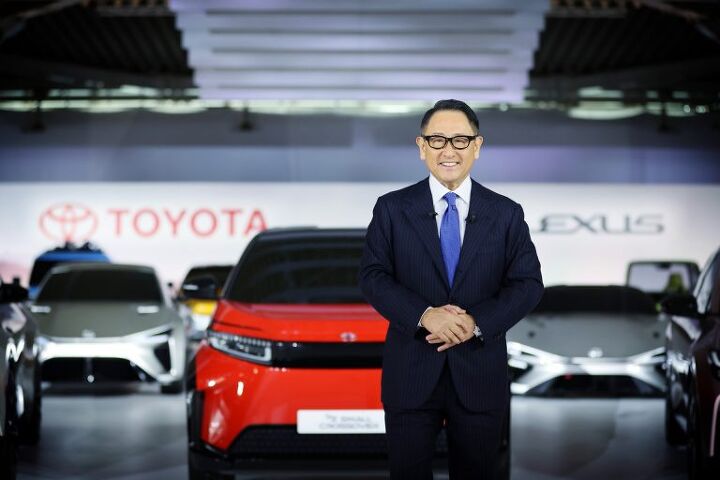
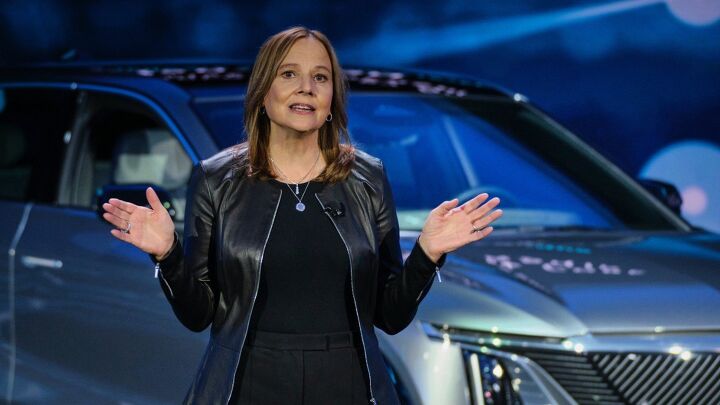
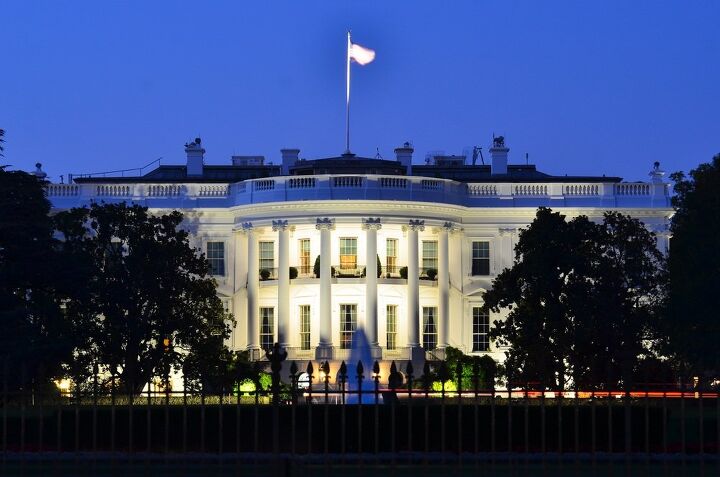



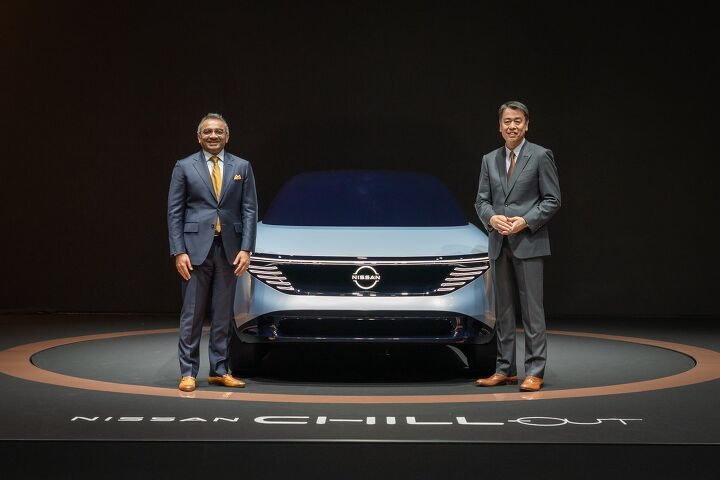
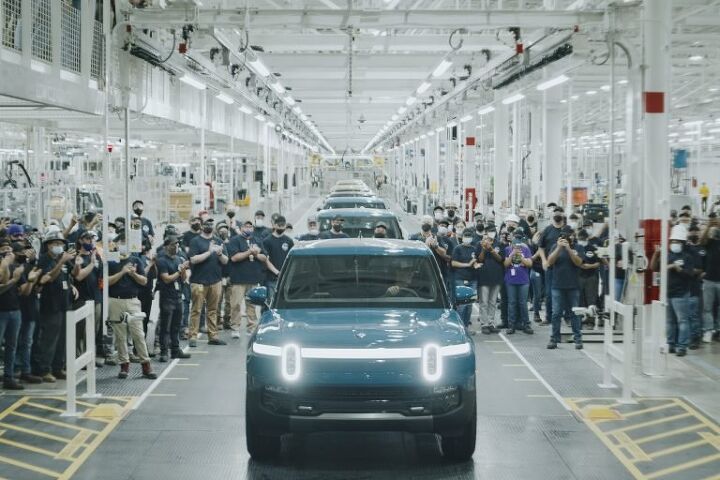

















Recent Comments